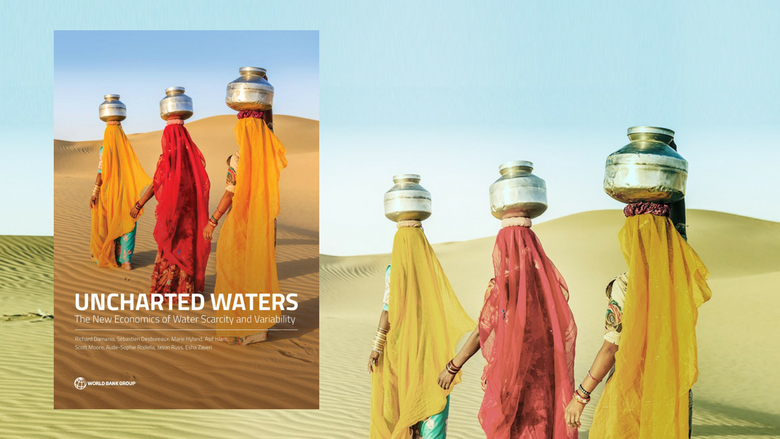World Bank Report: The New Economics of Water Scarcity and Variability
Published on by Water Network Research, Official research team of The Water Network in Government
The new report Uncharted Waters: The New Economics of Water Scarcity and Variability looks at how the increasing number of droughts and floods impact farms, firms and families in ways that are far costlier and longer lasting than known before.
New research shows that while the consequences of drought are often invisible, they are significant and cause “misery in slow motion”.

Source: WB
With growing populations and greater affluence, the demand for water is growing while the global supply of water is constant, causing increased water deficits especially in areas of particularly high population growth which are also often poor, fragile or in conflict, exacerbating existing problems for vulnerable populations.
To compound the problem, with climate change rainfall will become more erratic, causing more frequent and intense droughts and floods with even more damaging impacts, as seen in 2017 across the United States, the Caribbean, in sub-Saharan Africa and elsewhere.
This report shows how today’s ways of managing water are outdated and proposes solutions to help the world avoid a thirsty and uncertain future.
Since 2001, rainfall shocks have caused a loss of produce sufficient to feed about 81 million people every day, for the entire year. That’s equivalent to the population of Germany. Because droughts destroy crops, new data shows that farmers are forced to expand their farmland into nearby forests to grow more food.
But cutting down trees destroys watersheds, which causes rivers in the forest to dry up, decreasing the water supply that the farmers depend on. Deforestation also destroys carbon sinks, which worsens climate change and sets in motion a negative spiral, causing more droughts.
Read full article: World Bank
Read and download report in the attachment or from World Bank
Media
Taxonomy
- Drinking Water Security
- Drinking Water Treatment
- Water Scarcity
- Water Access
- Scarcity
- Sanitation
- Water Scarcity In Desert area
- Access
- Water & Sanitation
- Sanitation & Hygiene
- Water Supply
- Drinking Water Managment
- Drinking Water
- Water Sanitation & Hygiene (WASH)